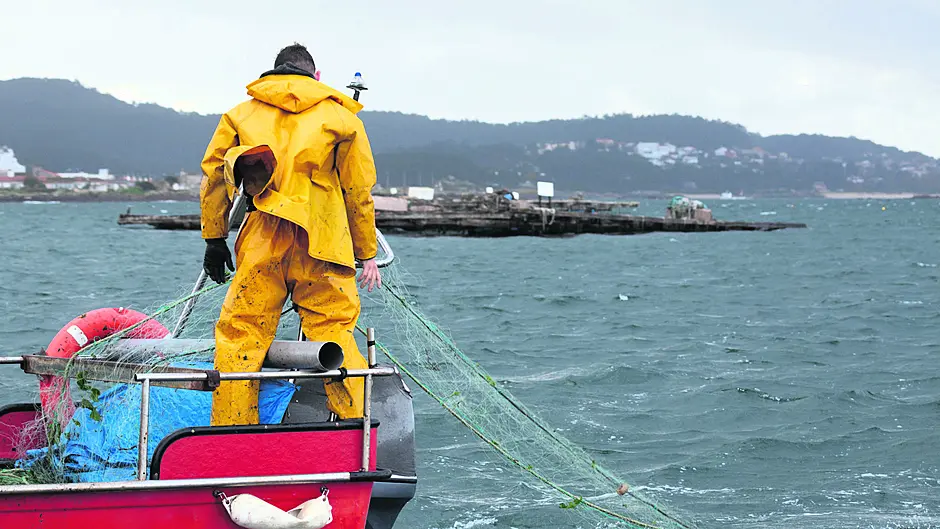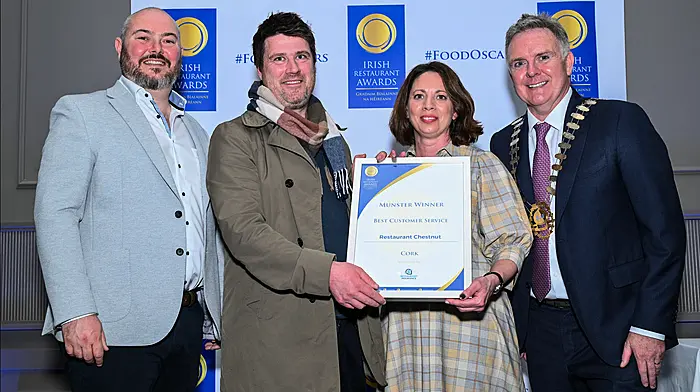A PUBLIC consultation on changing Ireland’s six-mile limit has reopened a contentious debate on Ireland’s fishing industry.
Minister for Agriculture, Food and the Marine, Charlie McConalogue has launched a public consultation on fishing with trawls inside the six nautical mile zone and the baselines and is seeking the public’s opinion on the matter.
Minister McConalogue stressed he has not made any decision to change the current arrangements.
And the consultation is sure to garner strong opinion.
Option 1: No change to the status quo
Option 2: All sea-fishing boats excluded from pair trawling inside the six nautical mile zone and baselines
Option 3: All sea-fishing boats over 18m in length overall excluded from trawling inside the six nautical mile zone and baselines
Option 4: All sea-fishing boats over 15m in length overall excluded from trawling inside the six nautical mile zone and baselines
The Dept of Agriculture, Fisheries and the Marine says possible options may arise during the consultation for consideration.
The National Inshore Fishermen’s Association has about 150 members, who between them operate over 200 inshore fishing vessels. The majority of its members – though not all – fish using boats under 12m. They are part of Ireland’s 2,000 strong inshore sector, who work within 12 nautical miles of shoreline.
Michael Desmond is a Nifa director fishing out of Roaringwater Bay. Michael says that Nifa is advocating for option 3: all sea-fishing boats over 18m in length overall excluded from trawling inside the six nautical mile zone.
‘The larger vessels (over 18m) that take most fish from inside the 6nm actually have a much smaller economic dependency on the resources inside the 6nm compared to vessels under 18m. The vessels over 18m have ample opportunities available to them outside the 6nm limit, indeed outside of Irish territorial waters, which they are well capable of utilising.
‘Dependency is important in terms of the sustainability of coastal communities. In short, under 18m boats seed to fish inside the six-mile limit to survive, over 18m boats don’t.’
However the Irish South and West Fish Producers Organisation rejects this opinion and are advocating for option 1: no change to the status quo.
ISWFPO represents fishermen in the south and west coast of Ireland and has membership of primarily whitefish vessels ranging from 12m to 30m. Patrick Murphy, ISWFPO chief executive, said that any changes to the status quo on the six-mile limit would in effect ‘be putting more fishing families out of business’.
He said that any change to the status quo can’t be made based on scientific data, because 39 boats were decommissioned in the past year.
‘There are only about 120 boats left in this fleet, and of that many would not be fishing within the six-mile limit. So any change to the status quo would be done on incomplete data,’ he said.
He predicted a further legal challenge would follow if changes to the six-mile limit were made in the absence of updated scientific data.
The previous consultation on the six-mile limit under then Minister Michael Creed ruled that vessels over 18m would be banned from using trawl or seine nets inside six nautical miles, with a derogation for certain vessels in the polyvalent and refrigerated sea water pelagic segments targeting sprat.
However an appeal by a fisherman from Dingle and a fisherman from Castletownbere saw the Court of Appeal rule in their favour, ruling the ban on trawling inside the six-mile limit invalid.
Patrick Murphy said making the appeal had been a huge financial burden for both fishermen. But he expected any change which arose from the latest public consultation to face further legal challenges.
It’s a delicate balancing act for Minister McConalogue.
‘Five years ago, in December 2018, a transition to a ban on vessels over 18 metres trawling in inshore waters, inside the six nautical mile zone and the baselines, was announced following a previous public consultation. This ban had a strong support base but was overturned following legal challenge. In view of changes in activity and issues concerning the marine space since then, I think it is important that this issue is reviewed and reflected on in an open, inclusive process,’ he said.
He said that up-to-date scientific and economic advice from the Marine Institute and Bord Iascaigh Mhara, respectively, on trawling in the waters inside the six nautical miles is available as part of the new consultation, notwithstanding Patrick Murphy is questioning the data.
Minister McConalogue said: ‘I am conscious of the dependence of our inshore fleet, compared to larger vessels, on fishing resources within the six nautical mile zone. Other issues that need to be reflected on include balancing the management of our fisheries with the needs of the marine ecosystem but also the changes that have come with Brexit, the Energy Crisis and the Climate Crisis.
‘The policy context is greatly changed from 2018. I encourage all interested parties to read the consultation documents and to reflect on those in making any submissions.”
The purpose of this consultation is to seek the views of all interested parties on trawling activity inside the six nautical mile zone and baselines.
All interested parties are encouraged to make a submission to this Public Consultation.
• See: http://tinyurl.com/v9v2zhz4








